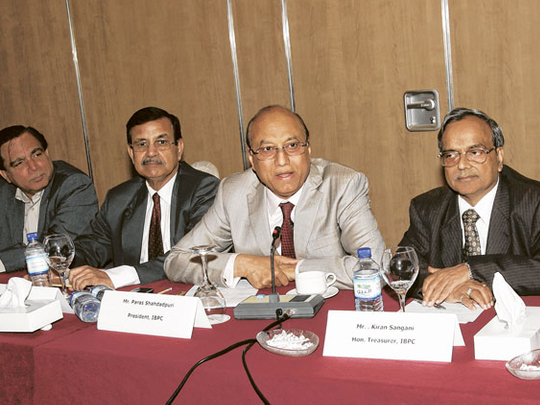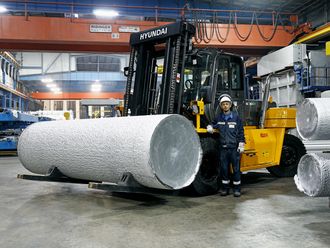
Dubai: India's Finance Minister Pranab Mukherjee yesterday presented the annual budget that targeted the easing of the impact of food inflation on lower income groups through higher social sector spending, agriculture reforms, incentives for micro finance and rural employment generation.
In his budget speech, Mukherjee said social spending would rise by 17 per cent in 2011-12. That includes spending Rs520 billion (Dh42 billion) on the education sector which is about 20 per cent higher than the allocation last year, while the health care sector was allotted Rs270 billion.
Businessmen and finance professionals based in Dubai said yesterday that although the budget has nothing for non-resident Indians, it is appropriately targeted at the poor and rural masses who have been hugely impacted by the rising cost of living.
"The economy grew more than 8.5 per cent last year and is projected to grow at about 9 per cent during 2011-12.
"With such strong growth prospects it is important for the government to make sure the rural poverty and the impact of rising food prices on the poorer sections is minimised.
Genuine efforts
"I think this year the government has made a genuine attempt," said Paras Shahdadpuri, President of Indian Business and Professional Council (IBPC).
Mukherjee announced yesterday that the government is working on a food security bill for 2011-12, that would provide cheap food for millions of India's poor.
The proposal has sparked worries over its huge cost. The government hopes buoyant tax revenues from near-nine per cent econ-omic growth will keep the fiscal deficit falling to 5.1 per cent of GDP this fiscal year and to 4.6 per cent of GDP in 2011-12 — figures widely seen as being too optimistic.
In a pioneering move the finance minister said some subsidies for food and fuel would be directly given as cash to customers starting in March, a move aimed at making the subsidies system more efficient with less waste.
The government is expected to count on a robust economy to expand revenue in the absence of big one-time gains of $23 billion (Dh84 billion) that it enjoyed in the current year from the sale of 3G telecom licences.
Mukherjee said tackling inflation, currently at more than 8 per cent on an annual basis, remained the central focus of the government's economic policy but he forecast it to fall over the next year.
"It [inflation] clearly remains a concern," he said. "But I expect the policy taken by the Reserve Bank of India to further moderate inflation in coming months... average inflation to be lower next year."
Within targets
Analysts said yesterday that the increase in social sector spending could be financed through higher tax revenues from India's booming economy.
The projected Rs400 billion revenues from share sales in public sector companies is expected keep the fiscal deficit within the target, while the expanding tax base from the booming economy should be good enough to make for the incremental deficit.
"The budget allocation to the social sectors have been huge but its impact on fiscal deficit is going to be minimal as the government has already put in place plans to fund deficit through public sector disinvestment and increased revenue from tax collection supported by 9 per cent growth,' said Abbas Ali Mirza, board member and former President of the IBPC.











